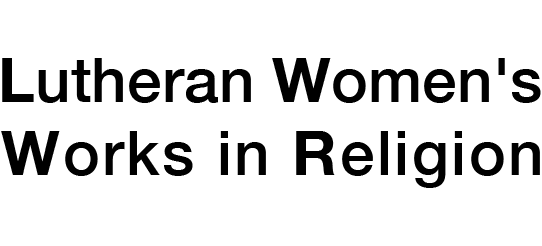Bibliography Author: Norma Cook Everist
ECCLESIOLOGY AND ECCLESIAL LIFE
Norma Cook Everist Church Conflict: From Contention to Collaboration., Nashville: Abingdon 2004Rarely are books about conflict written by women theologians. This book provides a theological core for seven responses to conflict: avoidance, confrontation, competition, control, accommodation, compromise and collaboration, showing positive as well as negative uses of each. Part One examines images, types and patterns of conflict and helps people look at their personal histories of conflict and potential leadership roles.
ECCLESIOLOGY AND ECCLESIAL LIFE
Norma Cook Everist Ordinary Ministry, Extraordinary Challenge: Women and the Roles of Ministry., Nashville: Abingdon 2000Professor Everist invited 25 diverse women engaged in the full range of parish ministry to show how they lead and serve, using the themes of “Trusting God,” “Liberating Christians,” “Living Vocation,” and “Nurturing Community.” The theological questions arise from the contextual realities as the women exercise ministerial leadership in the public world.
ECCLESIOLOGY AND ECCLESIAL LIFE
Norma Cook Everist, Nelvin Vos Where in the World Are You? Connecting Faith and Daily Life., Bethesda, Md.: The Alban Institute 1996The Reformation concept of the ―Priesthood of all Believers‖ has yet to be fully realized. These Lutheran scholars, a lay man and a clergy woman, provide a Trinitarian approach to the question of ―What in the world is God doing?‖ Using a variety of styles and methods, they help people reflect on and be empowered for ministry in daily life.
ECCLESIOLOGY AND ECCLESIAL LIFE
Norma Cook Everist, Craig Nessan Transforming Leadership: New Vision for a Church in Mission., Minneapolis: Fortress 2008Two Lutheran theologians, male and female, model in their writing and over 15 years of team teaching, a leadership style which builds trust, nurtures community and empowers congregations. The book covers topics from ecclesial foundations, to relational ethics and assets-based ministry. It explores power and partnership, congregational systems, spirituality, stress and the creative use of time, all towards honoring people and growth in wisdom.
ECCLESIOLOGY AND ECCLESIAL LIFE
Norma Cook Everist Open the Doors and See All the People: Stories of Church Identity and Vocation., Minneapolis: Augsburg Fortress 2005Republished Eugene, OR: Wipf and Stock 2016. This compact book of stories from the author‘s visits to congregations across the entire country invites people to reflect upon the nature of the Church and how congregations are called and equipped for God‘s mission. She unfolds Lutheran theology inductively so that readers, having been drawn into compelling adventure, come back home and see people with new eyes.
ECCLESIOLOGY AND ECCLESIAL LIFE
Norma Cook Everist The Church as Learning Community: A Comprehensive Guide to Christian Education., Nashville: Abingdon 2002Based on the ecclesiological foundation of the gift of being teachers and learners together, this book address providing a trustworthy learning environment, methods, faith development, lifelong learning, confirmation ministry, teacher training, and the public vocation of educational ministry. It has an underlying Lutheran viewpoint for ecumenical use in parish, college and seminary.
ECCLESIOLOGY AND ECCLESIAL LIFE
Norma Cook Everist The Difficult But Indispensable Church., Minneapolis: Fortress 2002The authors, the faculty of Wartburg Theological Seminary, demonstrated the unity of the church in its diversity. A peer among them, Professor Everist encouraged authors in content and process to deepen their differences, not hide them, thus modeling how the church can be the body of Christ in the midst of its greatest challenges. As difficult as it is, we need one another.

